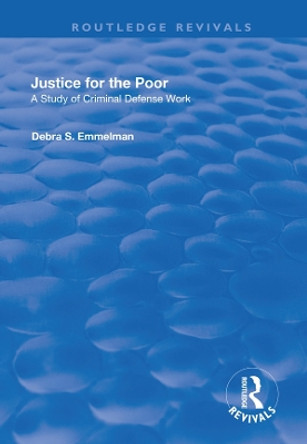More than three billion people, nearly half of humankind, live on less than two-and-a-half U.S. dollars per person per day. Studies have shown repeatedly that the main and often the sole asset of the poor is their labor. It follows that to understand global poverty one must understand labor markets and labor earnings in the developing world. Excellent books exist on ending world poverty that discuss in depth many important aspects of economic development but do not focus on employment and self-employment, work and non-work. Working Hard, Working Poor fills in where the other books leave off. Issues of analyzing poverty and low earnings in the developing world are quite different from those in the developed world. The discourse in the developed world is about incentive effects of social welfare programs, cultures of poverty, single-parenthood, homelessness, drug and alcohol abuse, ill health, mental illness, domestic violence, and the like. But in the developing world, different issues predominate, such as own-account work and household enterprises, agricultural work, casual employment, and informal work. And some of the policy issues--stimulating economic growth, harnessing the energies of the private sector, increasing paid employment, and raising the returns to self-employment--take a different twist. This book shows how people in poverty work, what has been effective in helping the poor earn their way out of poverty, and how readers might help.
About the AuthorGary S. Fields is John P. Windmuller Professor of International and Comparative Labor at Cornell University. He has published more than 100 articles and books and is the recipient of numerous grants from international organizations including the World Bank, the Inter-American Development Bank, the International Labor Organization, and others. Earlier in his career, he was named one of the 25 most widely-cited economists under the age of 40, and his book Retirement, Pensions, and Social Security (MIT Press) was designated an outstanding book of the year by Princeton University.
ReviewsGary Fields shows us the lives of the poor in developing countries and explains why so many are condemned to a life of hardship, no matter how hard they work. He also distills some of what's worked around the world and shows that solutions are possible. * Joseph E. Stiglitz, Nobel Laureate in Economics, 2001 *
Book InformationISBN 9780199794645
Author Gary S. FieldsFormat Hardback
Page Count 240
Imprint Oxford University Press IncPublisher Oxford University Press Inc
Weight(grams) 476g
Dimensions(mm) 236mm * 155mm * 20mm






